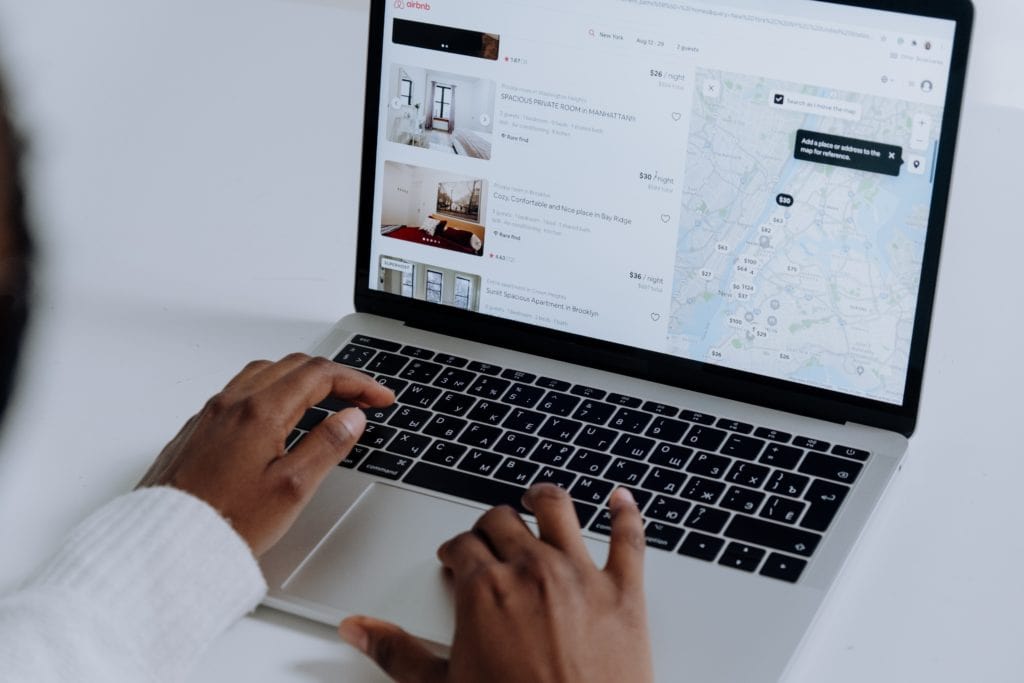Are you growing your vacation rental business and managing listings on channels like Airbnb, Vrbo, and Booking.com? Perhaps you’ve outgrown the simple iCal connection and need a more robust way to synchronize your properties’ rates, availability, and content. Property management systems and channel managers offer an efficient software solution for busy property managers: update your rates, availability, and content in the PMS or channel manager itself, then let the software distribute those updates to all of your connected sites.
But how does it all work? In this article, we’ll explore the capabilities of a channel manager and explain how to sync your Airbnb calendar with Vrbo and Booking.com using such a system.
What kind of connection does a channel manager offer?
If you don’t use a channel manager, you only have one option for synchronizing your Airbnb, Vrbo, and Booking.com calendars. That option is the iCal connection, which is a simple calendar sync. Synchronizing your Vrbo, Booking.com, and Airbnb calendars with an iCal connection will ensure that any booked days on one site appear unavailable on the other sites. This connection does not sync rates or content, and it usually transfers limited reservation information.
A channel manager enables you to use a more robust connection called an XML connection or API connection. With an XML/API connection, you can synchronize not only availability, but also rates and content, with various OTAs. An API connection makes it easy to see all of your reservations in one place (in your channel management software) and eliminates the need to manually change rates and content on multiple listing sites. Therefore, a channel manager with API connections is ideal for property managers with larger portfolios who want to streamline their operations.
Connecting your Airbnb calendar with a channel manager
To set up an API connection between your channel manager and Airbnb, you’ll need to first initiate the connection in your channel manager. Each channel manager has a unique interface, but the process is largely the same. You’ll enter your Airbnb account credentials in your channel manager’s Airbnb dashboard, which will pull up your Airbnb listings. The next step is to match your Airbnb listings with the listings in your channel manager.
Airbnb offers two API options: “Everything” and “Limited.” The “Everything” connection synchronizes content, rates, and availability. The “Limited” connection synchronizes only rates and availability, which means you’ll need to make content updates directly on Airbnb. Some channel managers also require a verification code or confirmation of the connection on Airbnb, so you might need to log into the Airbnb dashboard at the same time. Once that’s complete, you can start the synchronization process. The API connection refreshes constantly, so updates are made in almost real-time.
Note that Airbnb limits API connections for certain hosts and in certain geographic areas. Make sure to check Airbnb’s list of restricted markets before initiating an API connection.
Connecting your Booking.com calendar with a channel manager
Now that you’ve connected your channel manager to Airbnb, let’s connect it to Booking.com. The Booking.com XML connection requires a few steps in both your channel manager and the Booking.com extranet, so it’s a good idea to have both systems open simultaneously.
To start, log into the Booking.com extranet, and click on the “Account” menu and select “Connectivity Provider” from the list. You may need to complete a verification step to proceed.
Type in the name of your channel manager and click “Search” to find and select it. You’ll be prompted to choose which components you want to sync (rates and availability, reservations, and/or content), then complete the “XML Agreement.” Submitting that form will prompt your channel manager to approve the connection.
Once you’ve completed that step, go back to your channel manager and complete the setup process there. Most channel managers will ask for your Booking.com property ID (found in the top left corner of your Extranet homepage), and many ask for the Room Type ID. If you need the Room Type ID, you can find it in the Booking.com extranet on the “Property Layout” page. If you’re connecting multiple listings, simply repeat the process for each one.
Now that the connection has been initiated you may need to wait up to 24 hours for your channel manager to confirm the connection. If it’s not instantly confirmed, then you should receive an email or Pulse notification when the connection is live. It’s a good idea to log back into the Booking.com extranet to ensure your rates and availability are flowing through correctly from your channel manager.
Connecting your Vrbo calendar with a channel manager
While connecting your channel manager with Airbnb and Booking.com is a relatively self-service process, building a Vrbo connection can be somewhat more complex. Vrbo has stricter requirements for API connections, and the site will usually only allow connections for property managers who have more than 5 active Vrbo listings. If you meet Vrbo’s criteria, then you can proceed with the connection process.
Most channel managers request that you contact Vrbo directly to begin the connection process. Vrbo often requires some documentation in order to set up a property manager account for you – or to convert your existing owner account to a property manager account. Your Vrbo representative will guide you through the connection process. Once the connection is complete, your rates, availability, reservations, and content will sync between your channel manager and your Vrbo listings.
Limitations of channel management software
Channel managers can help you save time and money as you grow your short-term rental business, but it’s important to remember that they’re not perfect. Nearly everyone who has used a channel manager will tell you that they’ve encountered glitches from time to time or received a double booking without an explanation. However, those issues are usually quite rare.
One key limitation in using a channel manager is that you can often only connect to sites that your channel manager has established connections with. For instance, if you want to list your properties on Expedia, but your channel manager doesn’t offer an Expedia connection, you can either put some pressure on your software’s support team to build out an Expedia connection or you can switch to a new channel manager. If you’re considering using a channel manager, make sure to verify which sites it does and does not connect to.
Overall, a channel manager is a fantastic solution for short-term rental businesses that are growing quickly and need an efficient solution to prevent double bookings and synchronize rates, availability, reservations, and content. Doing your due diligence and speaking with support representations when you choose a system and when you build the connections can help the process go as smoothly as possible.
Do you have any tips to share about using a channel manager? We’d love to hear them!








